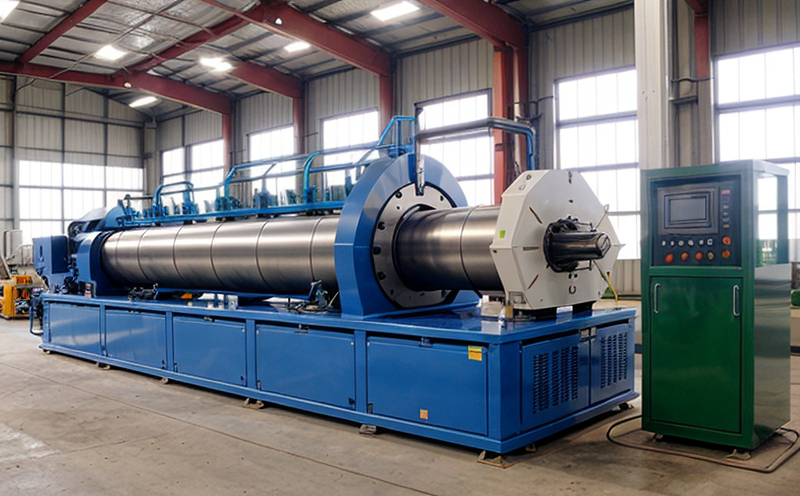ISO 24187 Traceability in Recycling Process Chains
The ISO 24187 standard is a cornerstone in ensuring that traceability across recycling process chains is robust and reliable. This service focuses on the detailed analysis and validation of materials throughout their lifecycle, from collection to final product manufacturing. The primary goal is to ensure that every step of material handling adheres to international standards for accuracy and consistency.
The importance of ISO 24187 in recycling processes cannot be overstated. It provides a framework for tracking the identity, characteristics, and history of materials as they move through various stages of processing. This includes monitoring how raw materials are transformed into products that can then be reused or repurposed. By implementing this standard, businesses can demonstrate compliance with regulatory requirements while also enhancing their reputation by showcasing environmental responsibility.
The service we offer is tailored to meet the needs of industries dealing with complex recycling processes. Our team works closely with clients to understand specific challenges and goals related to material traceability. From initial consultation to final report delivery, we provide comprehensive support throughout the entire project lifecycle. This includes conducting detailed assessments using advanced analytical techniques such as spectroscopy, chromatography, and mass spectrometry.
One key aspect of our service is ensuring that all data collected during testing aligns with ISO 24187 requirements. We employ state-of-the-art equipment to ensure precision and accuracy in every measurement made. Additionally, we ensure that our reports meet not only local but also international standards like EN ISO 9001 for quality management systems.
Another critical component of this service is training personnel involved in recycling operations on how best to implement ISO 24187 principles within their facilities. By doing so, companies can improve efficiency and reduce errors associated with manual tracking methods. Furthermore, these trainings help foster a culture of continuous improvement that supports long-term sustainability goals.
Our team also assists clients in developing strategies for improving traceability across multiple locations or supply chains. This could involve integrating digital platforms or implementing barcoding systems to enhance visibility throughout the entire process chain. These solutions not only improve operational efficiency but also contribute significantly towards meeting environmental targets set by governments worldwide.
In summary, our ISO 24187 Traceability in Recycling Process Chains service offers a holistic approach aimed at enhancing material flow management through rigorous testing and validation procedures based on internationally recognized standards. With our expertise in this area, organizations can confidently demonstrate compliance while simultaneously driving innovation towards more sustainable practices.
Scope and Methodology
The scope of the ISO 24187 standard encompasses the entire lifecycle of materials involved in recycling processes. This includes collection, sorting, processing, and end-product manufacturing stages. The methodology involves several key components:
- Initial sampling and characterization
- Data recording and storage
- Process validation and verification
- Final product assessment and certification
The initial sampling phase is critical as it sets the foundation for subsequent steps. Properly collected samples ensure accurate representation of the material being tested, which in turn leads to reliable results.
Data recording plays a crucial role in maintaining traceability throughout the process chain. All relevant information about each step must be meticulously documented and stored securely. This allows for easy retrieval when needed during audits or quality checks.
Validation and verification are essential to confirm that processes meet specified criteria. Regular calibration of equipment ensures consistent measurements across different batches or lots. In addition, independent audits can provide additional assurance regarding compliance with standards.
The final product assessment involves evaluating the quality characteristics against predefined specifications. Certification is issued only after successful completion of all required tests and evaluations.
International Acceptance and Recognition
- Australia: The Australian Government recognizes ISO 24187 as a key standard for waste management practices, promoting its use in both public sector projects and private enterprise initiatives.
- New Zealand: Similar to Australia, New Zealand has incorporated ISO 24187 into their national regulations governing resource recovery operations.
- European Union: All EU member states are encouraged to adopt ISO 24187 as part of broader efforts towards circular economy principles. Compliance is often a prerequisite for receiving financial support under various EU programs focused on sustainable development goals.
- United States: While not mandatory, many U.S. states have begun adopting elements from ISO 24187 into their own state-specific policies related to solid waste management and recycling infrastructure investments.
Beyond governmental endorsement, numerous private sector organizations have also embraced ISO 24187 due to its benefits in improving operational efficiency, reducing costs associated with non-compliance, and enhancing brand reputation among environmentally conscious consumers.
Use Cases and Application Examples
- Plastic Recycling: In this industry, ISO 24187 helps track the source of plastics collected from various sources (e.g., households, businesses), ensuring that only appropriate materials enter the recycling stream. This prevents contamination issues which could compromise the quality of recycled products.
- Metal Processing: For metal recyclers, this standard ensures accurate tracking of metals throughout smelting and refining processes, helping to maintain purity levels necessary for producing high-quality alloys used in manufacturing.
- Paper Recovery: Paper mills benefit from ISO 24187 by being able to trace back raw pulp origins, ensuring compliance with environmental regulations regarding wood sourcing practices.
- Electronic Waste Recycling: Given the complexity of electronic waste composition, this standard aids in managing hazardous substances more effectively, thereby minimizing risks associated with improper disposal methods.
In each case study, adherence to ISO 24187 has led to tangible improvements such as increased efficiency, reduced costs, and enhanced customer satisfaction. These positive outcomes underscore the value proposition offered by our comprehensive traceability services.





